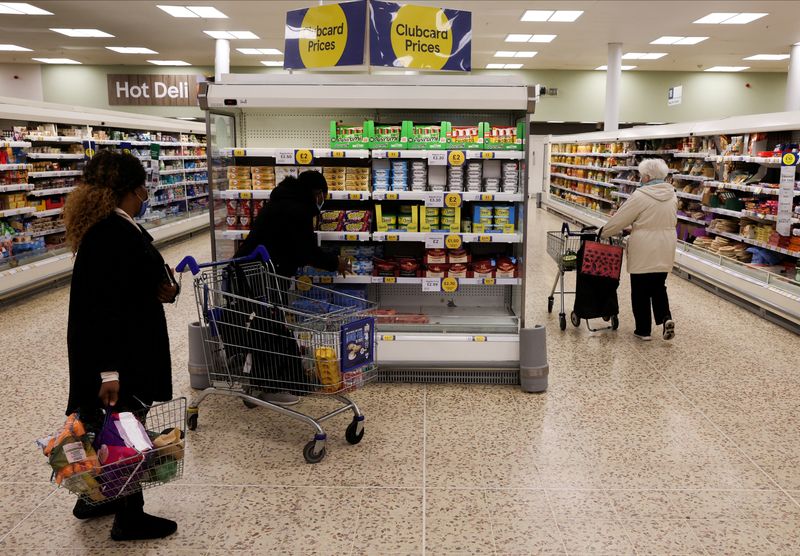Retailers and suppliers in Canada have been increasing their prices in order to cover the costs of higher wages, higher taxes, and other labor costs due to the impacts of the COVID-19 pandemic. These price hikes have been felt by consumers, with some items such as food items and home goods seeing the largest increases. Analysts are predicting that prices are likely to continue to rise in the near future, as the cost of doing business remains high due to the pandemic.
By Richa Naidu
LONDON (Reuters) – Shoppers around the world will pay even more for groceries this year than they will in 2022, according to retailers, consumer goods companies and investors, unless raw material costs fall or the shift to cheaper private label products accelerates.
Retailers and consumer goods manufacturers have been locked in tough price negotiations for more than a year, with tensions over COVID-related blockages in the supply chain starting in 2021.
This has since evolved into struggles over high raw material and energy costs in the wake of Russia’s invasion of Ukraine, with rising prices for staples from bread to milk to meat exacerbating a cost-of-living crisis in Europe.
Britons paid a record 16.7% more for groceries in the four weeks to January 22 compared to the same period last year, according to research firm Kantar. The US food index, including meals consumed at home and in cafes and restaurants, rose 10.4% for the year ended December.
Mark Schneider, CEO of the world’s largest food group Nestle, told a German newspaper last week that the company needs to raise the prices of its food products further this year to offset higher production costs, which it has yet to fully pass on to consumers.
“Investors will pay a premium for companies that have pricing power in their portfolio without negatively impacting volume and market share,” said Jack Martin, fund manager at Oberon Investments.
Big packers’ margins have been squeezed by higher input costs for over a year as prices for ingredients like wheat and sunflower oil have skyrocketed since the Ukraine war began last February.
Unilever, which is due to report full-year results on Thursday, said in October that its underlying price growth — an indicator of pricing — rose to a record 12.5% in the third quarter. Nestlé and dairy giant Danone will report results later this month.
Tineke Frikkee, a portfolio manager at Waverton Investment Management, expects Unilever to hike prices in 2023, albeit selectively.
“The last time we heard from Unilever, it was made clear that they prefer to sell fewer products at higher prices in order to keep prices below their competitors and gain market share,” Frikkee said.
RETAILER PUSHBACK
Consumer goods makers – will continue to raise prices until they regain profitability, said Bernstein analyst Bruno Monteyne.
“The only thing that can stop this is … consumers are starting to switch to private label products more quickly … (and) if commodities continue to fall, then there may not be a need for further price hikes.”
In December, the CEO of Walmart, the world’s largest retailer, warned that some “packaged goods suppliers are still alerting us to further inflation next year, on top of mid-double digits this year.”
“Dry groceries and consumer staples have double to mid double digit inflation, which feels stubborn to us,” Doug McMillon said, adding that suppliers would be encouraged to focus on “longer term with us.”
European retailers are also pushing back.
“With the big suppliers we insist on long-term contracts that don’t need to be renegotiated,” Belgian discounter Colruyt told Reuters.
Britain’s largest supermarket group Tesco and Kraft Heinz failed to agree on the prices of some brands last year, causing several products to disappear from shelves. This month, Unilever discontinued Hellmann’s Mayonnaise due to cost inflation in South African stores.
Tesco CEO Ken Murphy said last month he was confident inflation would peak by mid-2023 and then ease off.
Warren Ackerman, an analyst at Barclays, said that while food commodity prices are down an average of 20% from March highs, it will take time for this to be reflected in companies’ costs.
(Reporting by Richa Naidu in London. Additional reporting by Jessica DiNapoli in New York and James Davey in London; Editing by Matt Scuffham and Emelia Sithole-Matarise)
Don’t miss interesting posts on Famousbio









